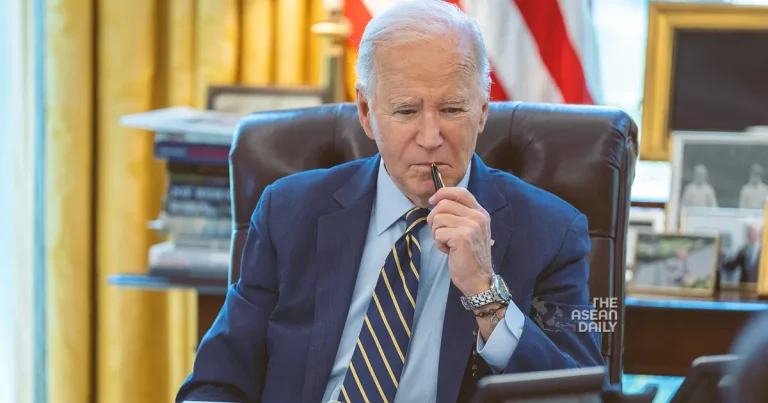5-4-2024 (WASHINGTON) In a major escalation of tensions, President Joe Biden sternly cautioned Israel on Thursday (Apr 4) that US policy towards the ongoing Gaza conflict could undergo a stark shift amid mounting frustration with Prime Minister Benjamin Netanyahu and increasing domestic pressure in an election year.
While steadfastly supporting Israel since Hamas initiated attacks on October 7th, Biden’s condemnation of civilian casualties in Gaza had hitherto not deterred Washington from supplying military hardware to its key ally. However, the Democratic president now faces a spiralling backlash from Muslim and younger voters over his stance, with political allies at home urging him to make US aid conditional on altered Israeli behaviour.
During a tense 30-minute call with Netanyahu following Israeli strikes that killed seven aid workers in Gaza, Biden hinted at precisely such a move. For the first time, the White House stated, Biden “made clear that US policy with respect to Gaza will be determined by our assessment of Israel’s immediate action” to halt the killings and address the dire humanitarian situation. The robust language, labelling the aid worker attack as “unacceptable” while pressing Israel towards an immediate ceasefire, underscored the mounting frictions with Netanyahu.
“Yes, there’s been growing frustration,” confirmed White House National Security Council spokesman John Kirby. While declining to confirm whether halting military aid was on the table, Kirby afforded Israel little leeway, warning that the United States expected action within “the coming hours and days”.
A Delicate Balancing Act The Biden administration faces a delicate balancing act as it attempts to calibrate its Gaza policy between what Kirby termed its “ironclad” commitment to Israel and burgeoning domestic opposition to the war.
Democrats fear that anger among Arab American and Muslim voters could undermine Biden’s prospects in key swing states like Michigan, which he needs to secure in an anticipated tight race against Republican Donald Trump in November.
A pivotal Biden confidant had earlier urged him to leverage the substantial military aid the US provides Israel annually. “I think we’re at that point,” remarked Democratic Senator Chris Coons from Biden’s home state of Delaware, speaking to CNN.
Biden is also reportedly facing pressure closer to home – from First Lady Jill Biden. “Stop it, stop it now,” she implored the president regarding Gaza’s mounting civilian toll, according to comments by Biden himself reported by The New York Times during a meeting with Muslim community members at the White House. A Palestinian-American doctor walked out of the gathering, while several declined to attend a traditional Ramadan fast-breaking dinner amidst the famine gripping Gaza.
All Talk, No Action? Despite historic tensions with the right-wing Netanyahu, Biden travelled to Israel as a self-described “Zionist” shortly after the Hamas attacks, embracing the premier. However, as civilian deaths surpassed 30,000 and the humanitarian crisis deepened, Biden’s rhetoric sharpened.
Biden authorised US airdrops of aid into Gaza and refrained from wielding the typical US veto at the UN Security Council, permitting a ceasefire resolution – much to Netanyahu’s ire. Yet Biden’s words have not translated into concrete steps limiting the billions in military aid Washington supplies its bedrock regional ally. In a sign of business as usual, his administration greenlit the transfer of thousands more bombs to Israel on the same day as the Israeli strikes killing those seven aid workers, The Washington Post reported on Thursday.
Ben Rhodes, a former deputy national security advisor to President Barack Obama, called for Biden to act. “Until there are substantive consequences, this outrage does nothing. Bibi (Netanyahu) obviously doesn’t care what the US says, it’s about what the US does,” Rhodes remarked.
US public opinion is also increasingly turning against Israel’s Gaza offensive. A March 27th Gallup poll revealed a majority of 55% now disapprove of Israel’s actions, compared to 36% who approve.




